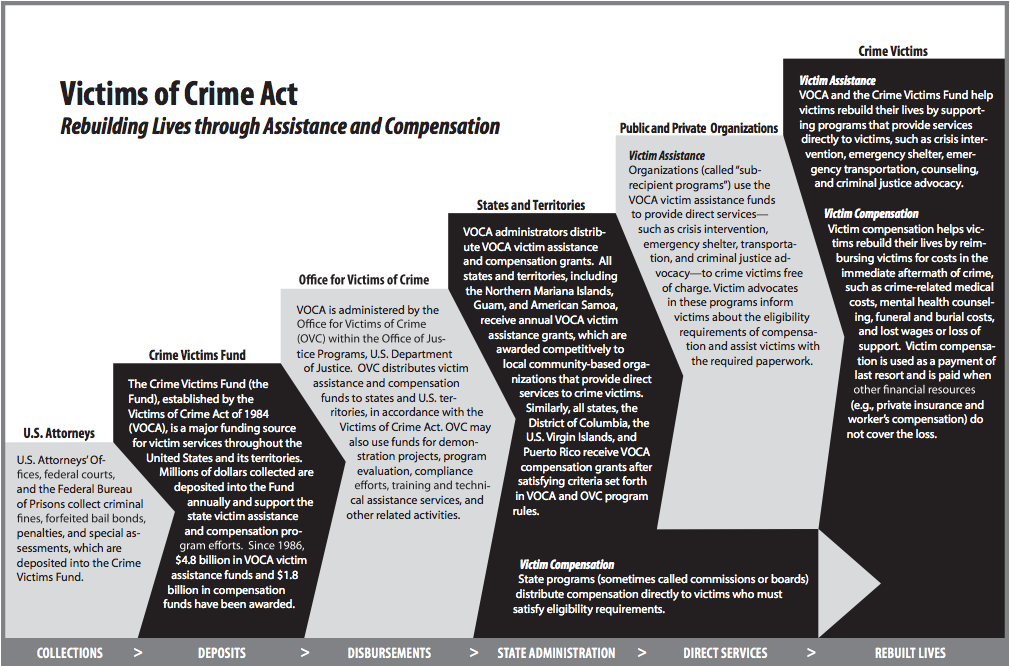How can I use funding from the Victims of Crime Act (VOCA) to address the housing needs of domestic violence survivors in my community?

The Victims of Crime Act (VOCA) has, since 1984, provided essential funding to state and local programs across the country that has enabled these programs to offer critical support services to victims of domestic violence. VOCA state assistance grants provide funding for crisis intervention, counseling, transportation, volunteer coordinators, services for elder victims and victims with disabilities, and more. We were excited to learn that the VOCA Final Regulation issued in 2016 by the Office for Victims of Crime (OVC) clarified that VOCA funds can be used to address the housing-related needs of survivors.
Under the final regulation, VOCA funding can be used to provide emergency shelter for victims of domestic violence, and to support victim-specific transitional housing programs. It can also be used for costs related to relocation, where necessary for the safety and well-being of a victim, including, but not limited to, reasonable moving expenses and travel, security deposits on housing, rental assistance, and utility startup costs.

In addition, VOCA funds may be used for training and training-related travel for both VOCA-funded and non-VOCA-funded direct service provider staff and allied professionals, as well as managers and Board members of victim service agencies. This means that domestic violence and sexual assault programs can invest in building their capacity to understand victims’ housing needs and options, as well as the homeless and housing systems in their state or community.
Now, as states across the country are beginning to significantly invest VOCA funding in responding to survivors’ housing needs, we’re seeing promising practices emerge – and hope that your program will also consider how VOCA funding can support your efforts to address this critical issue.